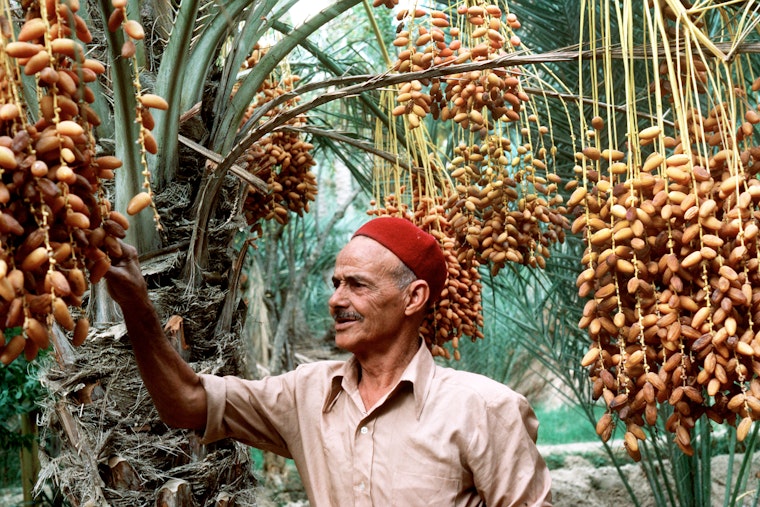Tunisia’s Negligence of Small Farmers Is Creating a Food Crisis
By Ezzaddean El Safi

Having made strides towards democracy, Tunisia is often hailed as the success story of the Arab uprisings. But the economic woes that triggered the revolts have yet to be addressed. Originating in rural areas where agriculture is the lifeblood of the economy, the protests that led to the Tunisian revolution highlighted the growing regional disparities that have long characterized the country.
While rising food prices were not the only trigger of the uprisings, agricultural policies contributed greatly to their dynamics. More than five years later, the availability and affordability of food, and the dependence of Tunisia on food imports, continue to be a defining feature of the country’s economic, social, and political landscape.
Tunisia’s economy has been slowly recovering from the economic blow of the uprisings. According to the World Bank Economic Monitor, the country’s GDP growth rose to 1.8 percent in 2016, a very modest increase driven by a strong agricultural sector, which grew by 9.2 percent while most other sectors of the economy contracted or stagnated.
Agriculture accounts for one-fifth of national employment and one-tenth of GDP. In rural areas, where the uprising was triggered after years of neglect and marginalization, half of all jobs are in agriculture. Yet agricultural development has been largely absent from the government’s efforts to kick-start economic growth, widening the gap between demand for food and the availability of domestic food sources.
Since the introduction of Structural Adjustment Program in the 1980s, Tunisia’s agricultural policies have shortchanged producers—particularly, small- and medium-sized farmers who constitute the majority of the country’s food growers. This is in part the result of international financial institutions’ policies that condition their support on the government’s ability to increase the availability of a particular product that is in short supply on the international market.
The assumption that countries with a comparative advantage to grow specific crops can establish food security through free trade on the international markets is problematic. It creates dependency on an international market that is volatile. After the 2008 global economic crisis, food security has deteriorated in most countries in the region as a result of the global food price crisis.
Despite the lack of government support, small farmers eked out a living in the country’s arid southeast until the early 1990s, relying mostly on springs and wells. Since then, however, they’ve been undermined by investors who are able to drill more wells for their large-scale irrigation schemes. This unsustainable use of soil and water resources by larger farmers has further eroded the economic and ecological potential of the agricultural sector.
Moreover, while the government exempts large farmers from water and irrigation taxes, small farmers are not only forced to pay these taxes, but also to reduce the prices of their productions without receiving any form of official support in return.
Another aggravating factor is the government’s encouragement of the informal economy despite its negative impact on small farmers; the informal economy increases the number of intermediaries, thereby driving up prices. For example, while a small farmer may sell his dates for two Tunisian dinars (about US$0.90) per kilo to an intermediary, the intermediary may then sell those same dates for seven dinars (US$3) on the market.
The deterioration of terms of trade and trade liberalization—including the planned opening of borders for agricultural products from abroad—is rendering agriculture unprofitable. Over time, the financial and social viability of agricultural occupations has been declining. Many farmers have no choice but to seek work in big cities, worsening Tunisia’s food security situation and import dependency.
Aware of the importance of agriculture and rural development to restore Tunisia’s economy, raise living standards, and combat unemployment and marginalization, we at the Open Society Foundations have been supporting and encouraging the Tunisian government and civil society to engage and work with small farmers to support sustainable productivity growth, climate-resilient farming practices, and evidence-based research and solutions.
We work with all stakeholders to initiate a debate about the kind of agricultural policy that would recognize the right to food, and see food-insecure people as central stakeholders in creating viable economic-enabling environments. Small farmers can help Tunisia attain food security if the government creates conditions for them to improve their livelihood and increase their productivity.
Without the contributions of small farmers, Tunisia could find itself perilously reliant on other nations simply to feed its people—an entirely avoidable scenario.
Ezzaddean El Safi was a program manager at the Open Society Arab Regional Office.


